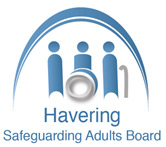Sexual abuse
Sexual abuse is any form of sexual activity where there is no consent, or any sexual activity with a person who lacks the mental capacity to provide consent.
Consent: to give permission for something to happen or to take part in something. Some people cannot give consent due to a disability, injury or illness.
Sexual abuse isn’t just physical; it also includes non-contact abuse such as sexual harassment, sexual photography or forced witnessing of sexual acts. Sexual abuse may include:
- Rape, attempted rape or sexual assault
- Inappropriate touching anywhere
- Non-consensual masturbation of either or both persons
- Non-consensual sexual penetration or attempted penetration of the vagina, anus or mouth
- Any sexual activity that the person lacks the capacity to consent to
- Inappropriate looking, sexual teasing or innuendo
- Sexual harassment
- Sexual photography or forced use of pornography or witnessing of sexual acts
- Indecent exposure.
Who is at Risk?
Anyone can experience sexual abuse regardless of ethnicity, age, sexuality, disability, religion or class. However, for people who are vulnerable due to a care or support need they may face additional barriers to seeking help.
If sexual abuse happens between people who are in an intimate relationship, or are related, this is domestic violence.
Perpetrator is likely to be someone who is known to the adult and has regular contact with them, such as a:
- Partner
- Friend
- Relative
- Carer
- Neighbour
- Other resident in a residential care home setting.
What are the Signs?
- Bruising, particularly to the thighs, buttocks and upper arms and marks on the neck
- Torn, stained or bloody underclothing
- Bleeding, pain or itching in the genital area
- Unusual difficulty in walking or sitting
- Foreign bodies in genital or rectal openings
- Infections, unexplained genital discharge, or sexually transmitted diseases
- Pregnancy in a woman who is unable to consent to sexual intercourse
- The uncharacteristic use of explicit sexual language or significant changes in sexual behaviour or attitude
- Incontinence not related to any medical diagnosis
- Self-harming
- Poor concentration, withdrawal, sleep disturbance
- Excessive fear/apprehension of, or withdrawal from, relationships
- Fear of receiving help with personal care
- Reluctance to be alone with a particular person
If you are concerned about an adult
The Safeguarding Adults Board’s objective is to protect vulnerable adults at risk from abuse in Havering.
Adult Social Services Safeguarding Adults Team
Telephone: 01708 433550
Fax: 01708 432497
Email: safeguarding_adults_team@havering.gov.uk
If there is immediate risk of serious harm then call the Police – Dial 999.
